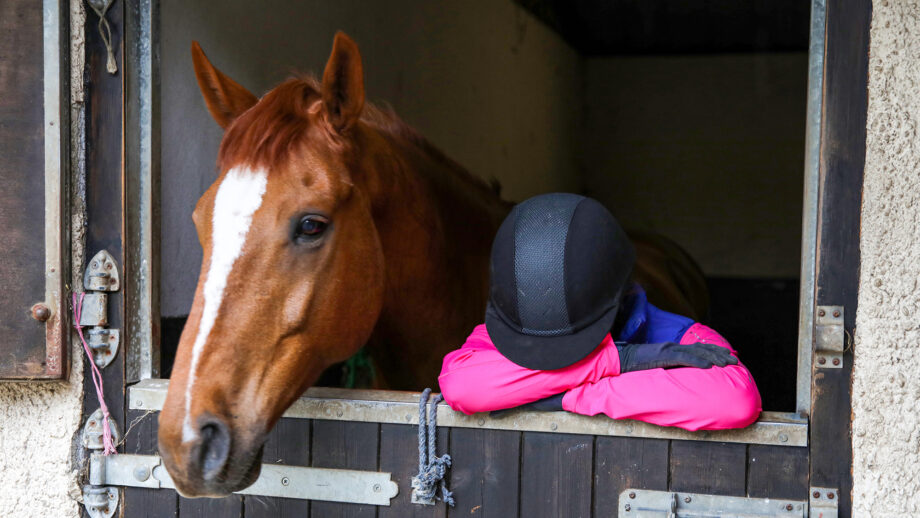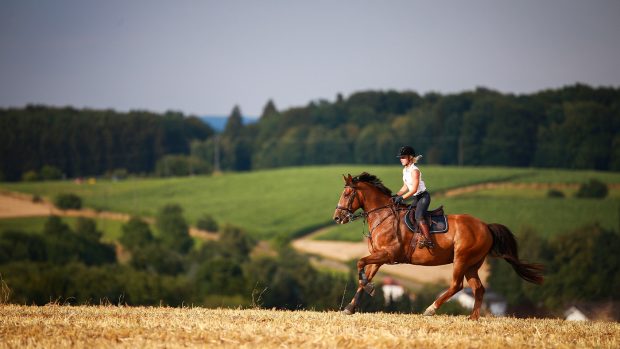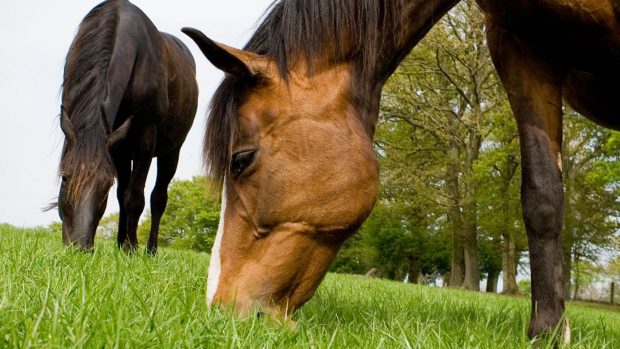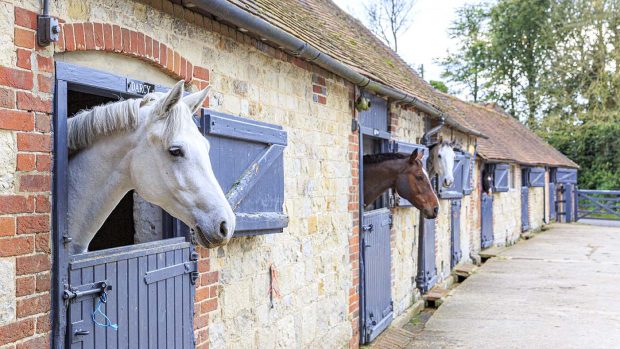From checking your weather app 20 times a day to booking your holidays around your competition schedule, horse ownership takes over every part of your life. When you love it, there’s nothing better. But what happens when you dread going to the yard? Or see riding or caring for your horses as a chore you have to do, rather than want to do?
Oonagh Meyer, head of approvals at the British Horse Society says: “Owning an equine can have its ups and downs, but the responsibility to provide good care and quality of life for their horse should ultimately feel like a rewarding experience for the owner. It’s important that owners recognise if they are no longer able to give their equines the time and care they need. Owning a horse is also a large financial commitment, and owners must be realistic about their ability to afford horse ownership long-term.”
So, if you’re thinking about taking a break from horses, take a look at these five options that are worth consideration first – rather than selling straight away and then regretting your decision.
1. Try a sharer or a full loan
If you could do with a few days off a week, why not look for a sharer or part-loaner? You’ll benefit from some downtime, and your horse still gets plenty of exercise and attention. It’s common to ask for a financial contribution too, so you can take some pressure off your budgeting.
“If short-term financial pressures are causing difficulty with full livery fees, owners could consider changing to assisted, part or DIY livery, or find a sharer who is happy to make a contribution in exchange for riding,” Oonagh explains. “Best practice would indicate this should only be undertaken with clear contractual agreement.”
You may want a bigger break than just a few days off every week. But if selling either isn’t plausible or something you want to do yet, then consider putting your horse on full loan. You’re still in control of their future, without the day-to-day care and riding. It’s a good way to test the water to see if you could sell — or if indeed you want a life without horses in it. That said, great care should be taken to check the suitability of the loan home and H&H recommends a legal contract is put in place so both parties are clear about their responsibilities.
2. Turn your horse away
Whether it’s a lack of time, money or motivation, turning your horse away can help ease your worries and stresses. For horses who don’t need their weight managed or grazing restricted, being turned away is a perfect way to take a break without having to sell. Plus, it can work wonders if your horse has been suffering from any health niggles or behavioural issues — the combination of time off and Dr Green has been known to work wonders in some cases.
Depending on the set up of the grass livery, the owner is likely to remain responsible for their horse’s daily care, although some yards will provide daily checks as part of the service, meaning you only need to visit when you want your horsey fix.
“Even if owners feel that the time has come to give up the day-to-day responsibility of owning a horse, remember that many activities connected to riding have significant physical and mental benefits,” Oonagh says. “Being outdoors and in contact with nature is a key motivation for the majority of riders, and the sense of emotional well-being people have when interacting with horses can be psychologically very important, especially if a rider is in poor health.”
3. Change yards
If you love to hack but have to cross a road that resembles the M25 at rush hour, it won’t take long to lose your motivation. Likewise, if you spend 10 months of the year slogging through shin-high mud, the joys of owning a horse get tiring, and fast.
If you want more time, support, or better facilities, consider a yard change. It might be putting your horse onto part livery or moving from stabling — and all the mucking out — to grass livery. One individual we spoke to owns a young Connemara gelding, and has struggled with the idea of giving up.
“There are so many reasons behind it — money, time, and feeling like I’m missing out on things that other people my age are doing, like travelling,” she explains. “I’m now considering putting my horse on grass or assisted livery to give me some breathing space and to focus on my partner and my career a little.”
Another horse owner moved to England from Switzerland and found the change in hacking a shock.
“I considered quitting riding shortly after I’d moved to England. In Switzerland, I used to go for hacks several hours long, without meeting anyone or hitting any traffic. Hacking has always been my favourite discipline and it helps me clear my mind after a long day at work. I found hacking in England incredibly stressful at first. It wasn’t relaxing, it didn’t give me any sense of freedom and for quite a while I didn’t actually enjoy it. That’s when I thought ‘why am I doing this at all?’ But I got used to it, helped by finding places to go for a good canter.”
Sometimes a new group of people, a little extra help, and better facilities can help reignite your love for riding and help get your motivation back.
4. Find a more suitable horse
Owning a horse that needs exercising every day to keep it safe and sane can quickly turn your hobby into a chore. We all have other commitments, and if you’re sacrificing some parts of your life to exercise your horse, it’s no surprise if you lose the love for it.
Riding shouldn’t be a chore, and if your current horse doesn’t fit in with your lifestyle, find one who does. If you like the odd hack at the weekend but can’t guarantee you’ll have time to ride five or six times a week, look for a horse that’s happy to go for weeks without being sat on, rather than one that requires sticky-bum breeches, a neck-strap and an air jacket after two days off.
5. The right support
Sometimes all you need is a fresh pair of eyes and a new approach. Another owner we spoke to spent years battling through injuries, behavioural issues and confidence wobbles with her two horses.
“I tried selling both of them at various times, but never found the right homes,” she says. Taking it as a sign to carry on, she also considered retiring them to get her “time and sanity back”. But for her, the light at the end of the tunnel came through taking a different approach.
“I tried various professional trainers and vets, using both traditional and natural methods. With one, we found he really enjoyed learning by play, so I used that, and he improved so much. With the other, it was all about perseverance.
“My main advice is to stay positive and never be afraid to ask for help. As soon as I started reaching out to the right people and telling them how I felt — rather than letting them take over — I started to achieve things. I’m usually a negative type of person, and just hearing positive words and reframing even tiny steps as a positive has helped my entire attitude, and I’ve started to enjoy having my horses again.
“We’re definitely not there yet, and some days I still feel like throwing in the towel, but I’m much more focused now.”
- To stay up to date with all the breaking news throughout the year and more, subscribe to the Horse & Hound website
You may also be interested in:

The expense of horses: should I buy, share or have lessons?

13 ways to save money on horse costs without compromising on care

How to ensure loaning out your horse is a great experience for everyone involved

Subscribe to Horse & Hound magazine today – and enjoy unlimited website access all year round



